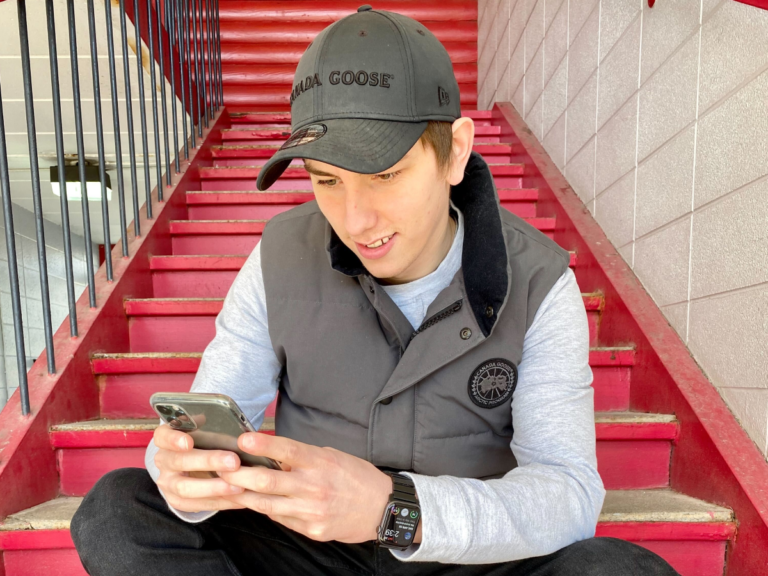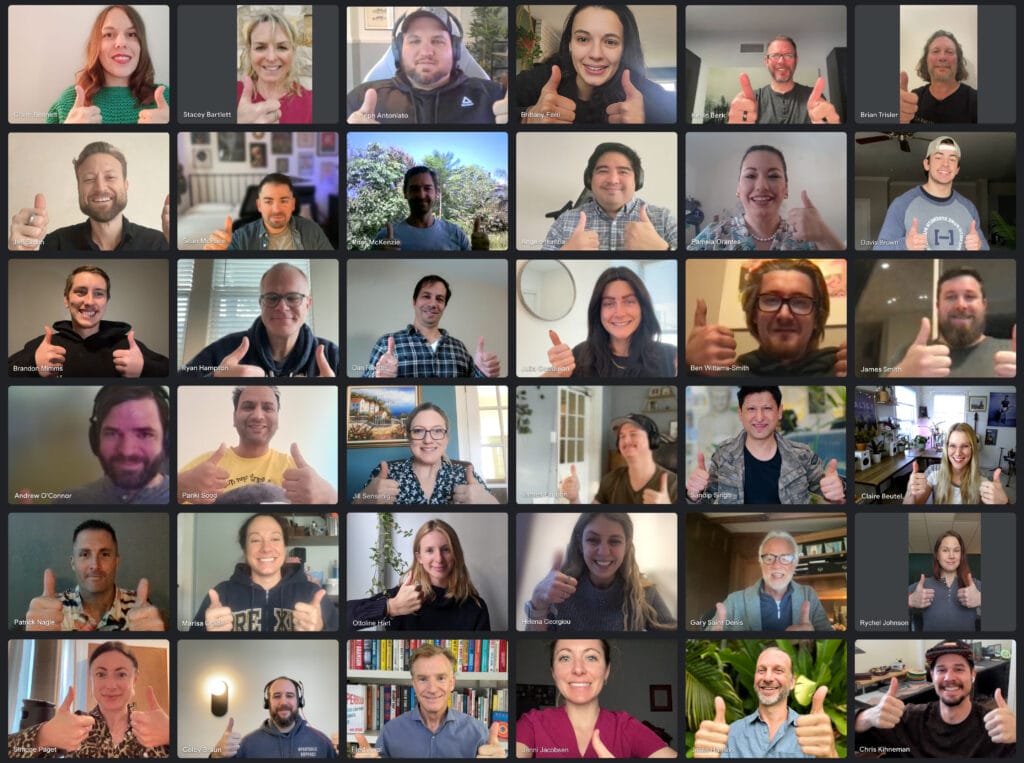If History Has Taught Us Anything About Technology
 Author:
Brandon Mimms
Author:
Brandon Mimms
 Editor:
Patrick Nagle
Editor:
Patrick Nagle

If History Has Taught Us Anything About Technology, It Is That Humans Are Quick to Expand the New Before Fully Understanding How It Will Impact Society
Hello ?! I’m Brandon Mimms, from Niagara Falls, Ontario, Canada. Over the past 15 years, I’ve immersed myself in the world of social media. It all started back in high school when I had the idea to create my very own ‘meme page’. I found myself captivated by the process of curating and sharing content, and the feedback it would generate for me, providing a feeling of community and purpose. Since then, I’ve managed social media for numerous premier brands and interacted with major influencers from all corners of the globe, generating billions of impressions, and earning prestigious recognition for my contributions in the field.
Like many, I often find myself entangled in the endless feedback loops of scrolling, giving likes, and engaging in self-promotion. It’s challenging not to do so, as our minds have been permeated and rewired by social media systems that exploit our inherent epigenetics. And just like everyone, I need community.
Social media is a double-edged sword, capable of connection and isolation. Our responsibility lies in its mindful use, recognizing both its potential benefits and associated challenges, all while safeguarding our mental health.
As Chief Social Officer at MentalHealth.com, my role provides me with an awesome opportunity to make an impact in the world of social media and its influence on mental health. My mission is to nurture a vibrant and supportive social community that promotes a sense of purpose and belonging and ignites meaningful conversations about mental health.

Social media is a meticulously designed algorithm that caters to human pathology in its most extreme form.
The impact of social media hits close to home for me. I’ve witnessed firsthand the toll it can take on individuals’ mental health, including my own. The constant comparison to curated online personas can erode one’s self-esteem, and the pressure to present a perfect life can be overwhelming. It has saddened me to see friends and acquaintances struggling with these issues, often in silence.
I’m dismayed by how our society often rewards narcissistic behavior and turns a blind eye to sexualized online behavior. It’s not normal for young individuals, or anyone, to feel compelled to dress inappropriately to fit in. Not only has this disturbing behavior been accepted, but it has also been promoted, widely monetized, and normalized. Concerningly, individuals who do not conform to these digital trends can often feel left behind or out of place.
Two segments worth noting are the statistics on suicide and eating disorders. Social media can exacerbate feelings of isolation and inadequacy, contributing to the prevalence of these mental health challenges. It’s a stark reminder that the digital world we inhabit has real-life consequences, and we must take proactive steps to protect our mental health and support those around us. As the digital landscape continues to evolve, it’s imperative to reflect on its impact on our lives, mental health, and our sense of belonging.

We have been exposed to an unprecedented flood of information carefully selected to captivate our attention and elicit emotional response.
In today’s digital age, this information barrage takes various forms, from sensational headlines to manipulative social media content, all vying for our susceptible consciousness. To navigate this landscape successfully, awareness becomes critically important. Recognizing the persuasive tactics used in media and advertising systems allows us to make mindful choices about what we consume. Awareness is prevention.
Awareness not only acts as a defense against psychological manipulation but also serves as a proactive tool, enabling us to strike a balance between staying informed and safeguarding our mental health. That’s why I’ve compiled a concise list of social media risks and coping strategy tips.
- Competition & Mental Strain: The constant need to create engaging content, meet performance goals, and stay updated with current trends can take a toll on one’s mental health.
Tip: Practice self-compassion by avoiding constant comparisons and unrealistic standards. Instead of constantly comparing yourself to others and feeling pressured to meet unrealistic standards, focus on self-compassion. Acknowledge that it’s normal to feel overwhelmed at times, and be kind to yourself during moments of stress. - Online Hostility: Dealing with detractors, trolls, or cyberbullying can be emotionally draining.
Tip: When facing online hostility from detractors, trolls, or cyberbullying, consider limiting your engagement with negative comments and individuals. Prioritize your mental well-being by focusing on positive interactions and support from your online community. - Privacy Risks: Sharing too much personal information or thoughts online can make you vulnerable to privacy breaches.
Tip: Avoid oversharing personal details or sensitive thoughts, and regularly review your privacy settings on social media platforms to minimize potential risks. - Comparison & Confidence: Continually seeing seemingly perfect lives on social media can lead to feelings of inadequacy and a decline in self-esteem.
Tip: Remind yourself that social media often showcases curated highlights, not the full reality of people’s lives. Focus on your own growth and accomplishments, and consider limiting your exposure to content that triggers feelings of inadequacy. - Overuse: Spending too much time on digital platforms can result in information overload and addiction to social media.
Tip: Manage overuse by setting specific time limits for your digital device and social media usage. Create a daily schedule that includes designated “offline” periods for relaxation, hobbies, and personal connections. This will help you strike a healthier balance and reduce the risk of digital addiction and information overload. - Isolation: Engaging in a digital environment and spending less time in face-to-face interactions can contribute to isolation, eroding our connection to the physical world and meaningful relationships, which impacts our emotional health.
Tip: Combat isolation by making a conscious effort to prioritize face-to-face interactions and real-world connections. Set aside dedicated time for in-person social activities and maintain a healthy balance between your digital and physical life to nurture meaningful relationships and support your emotional well-being.
While the challenges posed by social media on our mental health are undeniable, there is hope. Setting boundaries between work and personal life, developing a supportive offline community, and practicing self-care are key steps in achieving optimal mental health in the digital age.
The key is to associate with a community of people who uplift you, whose presence brings out your best.

I take my role and responsibilities seriously, and I’m proud to be a part of the team at MentalHealth.com because it provides a platform to make a meaningful difference in the lives of people who may be struggling with the impact of social media on their mental health. By offering guidance on establishing healthy boundaries, managing online interactions, and promoting positive self-esteem, we empower people to take control of their lives and help protect their mental health.
I encourage everyone to come together, provide mutual support, and advocate for increased social media awareness. Collectively, we can create a better future where social media enhances our lives without compromising our mental health.
Join me in my mission to increase social media mental health awareness by sharing my first blog post. If you need support or just want to connect, you know where to reach me.
– Brandon

We are a health technology company that guides people toward self-understanding and connection. The platform provides reliable resources, accessible services, and nurturing communities. Its purpose is to educate, support, and empower people in their pursuit of well-being.
Brandon Mimms is a social media expert, entrepreneur, and content creator with over 15 years of experience.
Latest

Categories
- Opinion (137)

